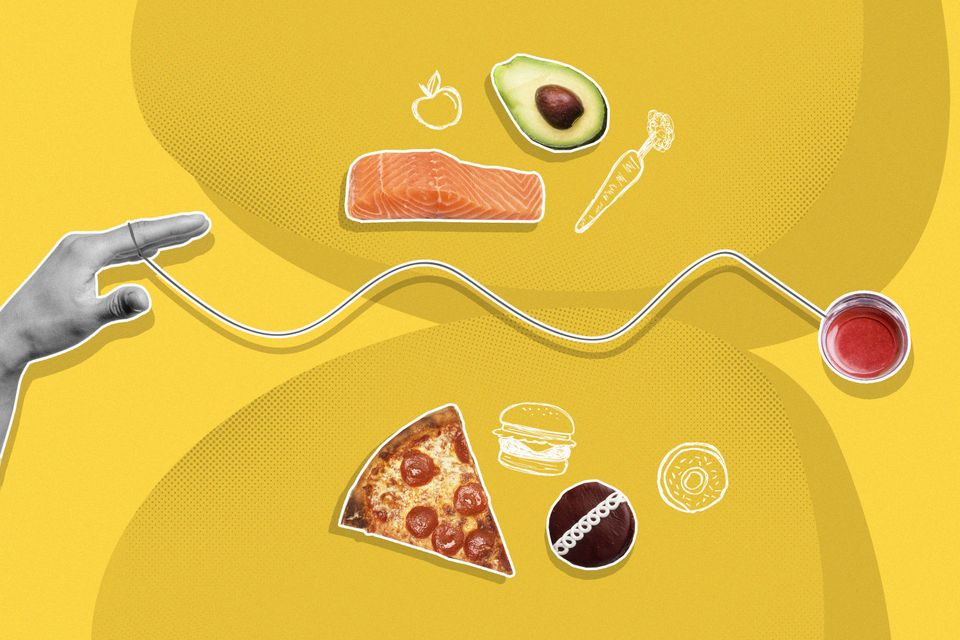What Is Yo-Yo Dieting? How to Stop the Cycle.

Every other day, it seems like there's a new weight-loss program or meal plan popping up on social media, promising fast and impressive results. It's tempting to jump on the bandwagon and try something new, but experts warn that many of these diets are unsustainable and may lead to weight regain once you stop following them.
This pattern of starting and stopping diets, and the subsequent weight fluctuations, is commonly known as yo-yo dieting. If you find yourself caught in this cycle, keep reading. In this article, we will explore what yo-yo dieting is, why it can be risky, and how you can put an end to the cycle once and for all.
Yo-yo dieting, or weight cycling, refers to the process of repeatedly starting new diets, losing weight, stopping the diet, and regaining the lost weight. It's a pattern often observed in individuals who struggle with their relationship with food and body image.
The allure of new diets promising to make you look and feel your best can be enticing, but it often leads to a cycle of weight loss followed by weight gain.
Why is yo-yo dieting risky?
Let's take a closer look at some of the negative impacts it can have on your health.
1. May Slow Your Metabolism:
When you consistently under-eat or follow restrictive diets, your body responds by increasing hunger hormones and slowing down your metabolism. This can result in reduced thyroid function, decreased stamina, increased fatigue, and mood changes. Your body tries to counter the weight loss by conserving energy, making it harder to lose weight again. It's like your body goes into survival mode, which can be frustrating and discouraging.
2. May Increase the Risk of an Eating Disorder:
Yo-yo dieting can take away the joy of eating and lead to an unhealthy and unbalanced relationship with food. It can increase the risk of developing disordered eating patterns or even eating disorders such as anorexia or bulimia. Your focus shifts from nourishing your body to constantly counting calories and restricting certain foods, which can have serious consequences for your mental and physical well-being.
3. May Increase the Body's Buildup of Abdominal Fat:
Frequent yo-yo dieting can contribute to the accumulation of visceral fat around the midsection. Studies have shown a link between weight cycling and increased weight around the abdomen. Unfortunately, visceral fat is associated with various life-threatening conditions, including heart disease, stroke, and heart attacks. So, those temporary weight losses may come at a high cost to your long-term health.
4. May Put You at Risk for Type 2 Diabetes:
Yo-yo dieting can lead to a pattern of restricting or binge-eating, which can cause chronic blood glucose spikes. This irregular eating pattern may increase the risk of developing type 2 diabetes. It's essential to establish a balanced and consistent approach to food to maintain stable blood sugar levels and overall health.
5. May Reduce the Body's Muscle Mass:
Building and preserving muscle mass is crucial for strength, mobility, and healthy aging. Yo-yo dieting can sabotage your body's muscle mass and existing body fat. Losing weight should ideally involve losing fat while maintaining or even gaining muscle. This not only improves body composition but also contributes to overall health and fitness.
Now that we understand the risks of yo-yo dieting, let's explore:
How to stop the cycle and develop a healthier approach to eating and weight management.
1. Stop Labeling Foods as "Good" or "Bad":
Avoid categorizing foods as good or bad. Instead, focus on moderation and balance. By giving certain foods absolute power and making them off-limits, you can create a sense of restriction and loss of control. Allow yourself to enjoy a variety of foods in moderation, knowing that no food is inherently good or bad.
2. Incorporate Intuitive Eating:
Practice intuitive eating, which involves listening to your body's natural cues of hunger, fullness, and satisfaction. Tune in to your body's needs without restriction or deprivation. This approach promotes a healthier relationship with food and allows for more enjoyment and satisfaction in eating.
3. Focus on Self-Care and Stress Management:
Stress can often lead to emotional eating or using food as a coping mechanism. Prioritize self-care activities such as meditation, yoga, journaling, or engaging in hobbies that bring you joy and help reduce stress levels. Taking care of your emotional well-being can prevent emotional eating and support a healthier lifestyle.
4. Consider Seeking Professional Help:
If you've been trapped in the yo-yo dieting cycle for a long time or struggle with maintaining a healthy weight, consider consulting with a registered dietitian or a mental health professional specializing in unhealthy eating behaviors. They can provide you with personalized guidance and support to create a balanced and sustainable meal plan that suits your individual needs.
Breaking free from yo-yo dieting requires a shift in mindset and a focus on long-term health rather than short-term weight loss.
It's about nourishing your body, finding joy in eating, and establishing a sustainable lifestyle that supports your overall well-being.
Remember, seeking professional help and guidance can make a significant difference in your journey towards a healthier relationship with food and your body.